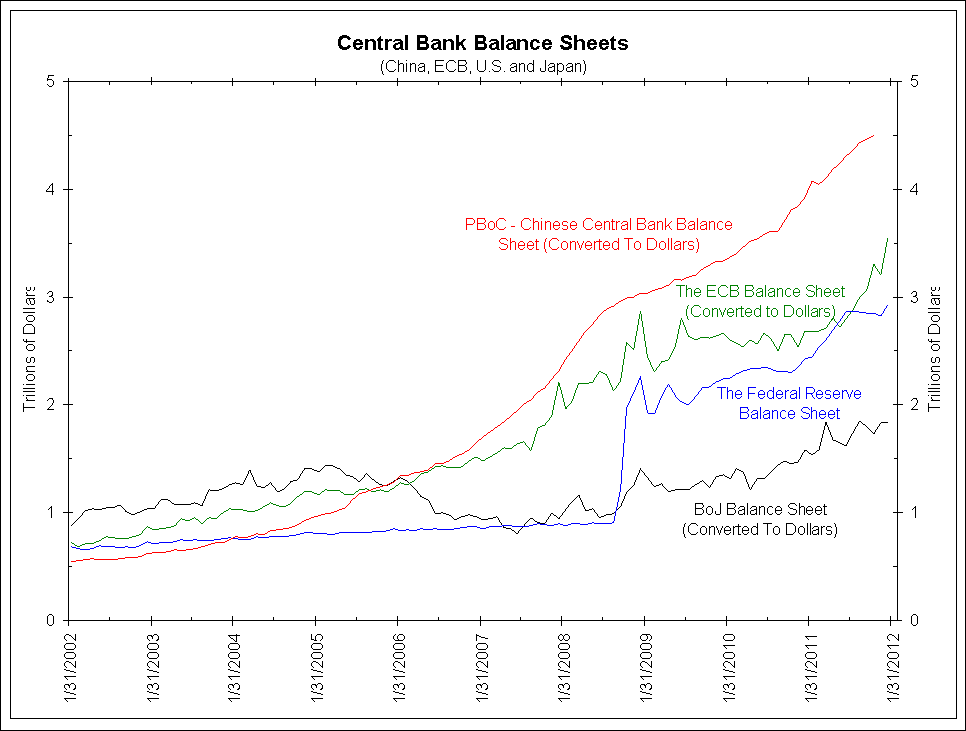 |
| The effects of quantitative easing by the central bank of China |
When talking about QE (Quantitative Easing), it is easy to lose site of just how big some of the numbers are. We are, therefore, going to do a series of posts briefly showing some of the hugely engorged balance sheets of some of the world's major central banks as a result of QE.
First, a quiz: Can you guess which central bank has the largest balance sheet in the world? Whilst many might guess that its the United States Federal Reserve due to how closely the FED is watched (and frequently criticized) by analysts and world leaders, but the Fed's balance sheet - at approximately US$2.8 trillion - is not even close to being number one. As you can see from the graph, the central bank of China - the PoBC - is far and away the highest at approximately US$4.5 trillion. Its no wonder that inflation has consistently remained high in China, and that the Chinese leadership is concerned about inflation's effect on the Chinese Middle class. As we have said before, if you are worried about the inflationary effects of QE, the best strategy is to hedge with real assets such as farmland investments and forestry investment.
